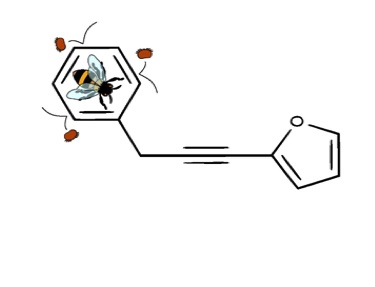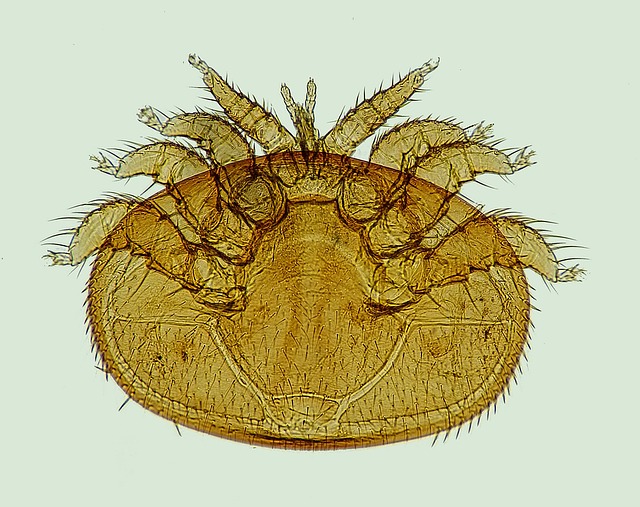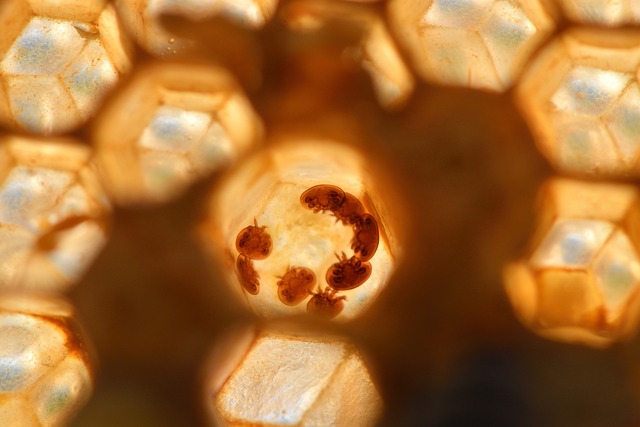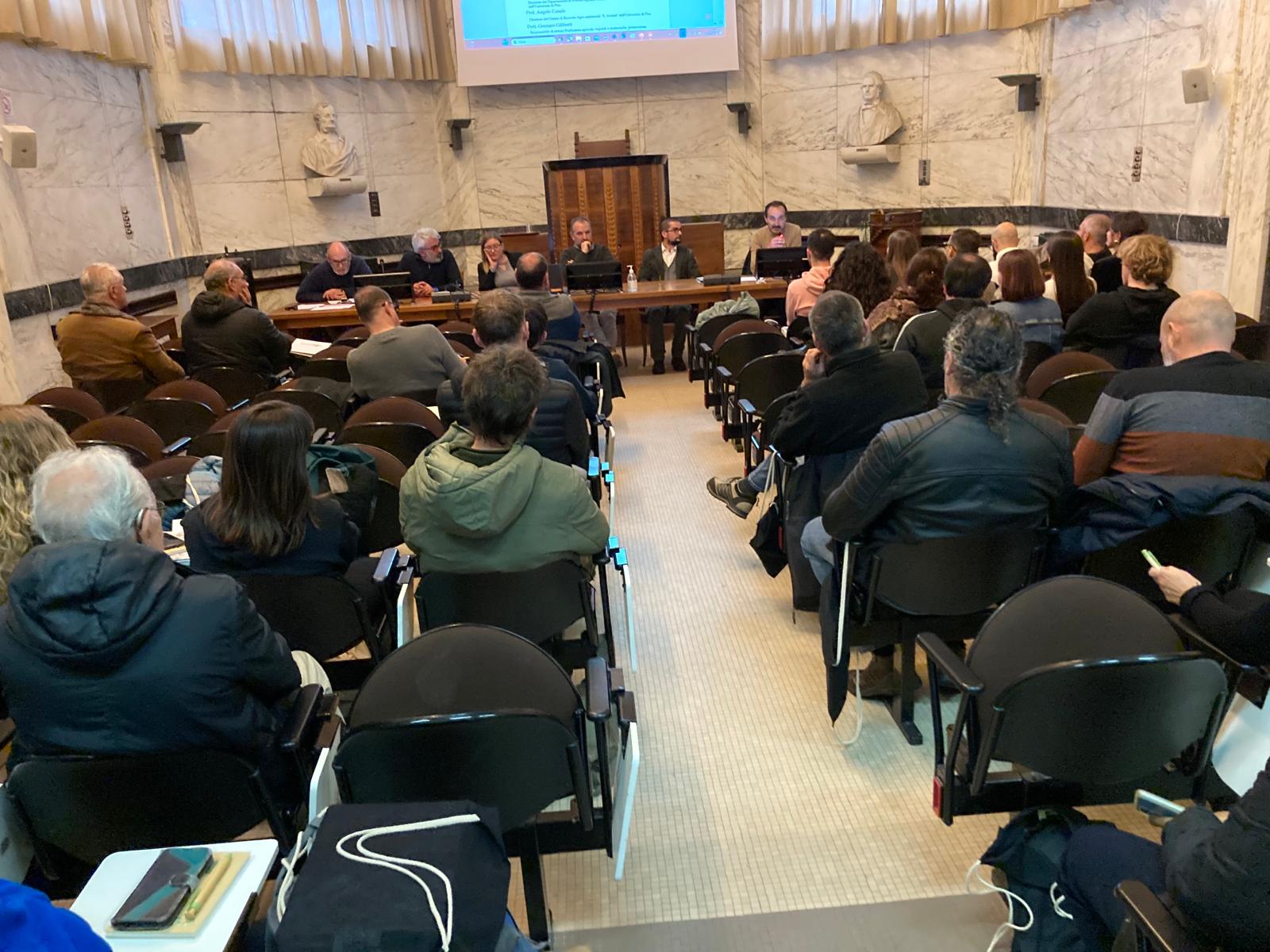
THE PROJECT
The project addresses a pressing concern in beekeeping, focusing on innovative approaches to tackle the challenges faced by the Apis mellifera L. species, particularly concerning the threat of the Varroa destructor mite and the adverse effects of synthetic pesticides. Varroa destructor is a significant parasite of bees, impacting bee health and colony survival by transmitting harmful viruses. Current treatments with synthetic acaricides pose environmental risks and health concerns. To address this, there is growing interest in environmentally friendly alternatives such as organic acids and bioactive plant extracts like essential oils (EOs). EOs have shown promise in controlling V. destructor, but comprehensive studies on their effects on bees are lacking. The European Union's REACH regulation has restricted synthetic pesticides, prompting the need for alternative, eco-friendly solutions. The project aims to develop EO-based acaricide formulations, potentially utilizing innovative techniques like nano-emulsions, to provide effective and safe solutions for beekeepers, particularly in regions with mild climates where traditional treatments may be ineffective.
ACTIVITIES
WP1 Essential oil-based nano-acaricide formulation
This WP aims to develop natural and eco-sustainable biopesticides for the control of V. destructor by formulating novel nano-acaricides based on commercial essential oils (EOs). The activities will be led by UNISA, with the cooperation of UNIRC and UNIPI.
Task 1.1. Chemical characterization of the EOs and preliminary toxicity trials. The chemical characterization of the EOs will be achieved using a gas-chromatograph coupled with a mass-spectrometer (GC-MS). A preliminary screening about the EO efficacy against V. destructor will be assessed by exposing adult mites to EO vapors, according to standard methodological procedures.
Task 1.2. Production of stable nano-formulations. The most promising EOs will be formulated into nano delivery systems to increase the persistence and the gradual release the a.i. Formulations will be characterized in terms of droplet size, distribution, surface charge, thermal and mechanical stability, using a polarizing optical microscope and a dynamic light scattering (DLS). The most promising EO-NEs will be further formulated into gel-matrix delivery systems or impregnable supports (e.g., boards of wooden material), that ensure the durability of the treatment for an appropriate time frame in operative conditions.
WP2 - Laboratory trials against the target mite V. destructor
The WP aims to test the acaricidal activity of the developed nano-formulations and dispensers against adult V. destructor mites. The activities will be led by UNIRC, with the cooperation of UNIPI and UNISA. The WP will be divided into 2 tasks: Task 2.1 Mites collection and apiary management and Task 2.2 Acaricidal activity of EO-based nano-formulates.
Task 2.1 Mites collection and apiary management. Mites will be collected from the UNIRC and UNIPI teaching and experimental apiaries. The apiaries will be not treated for at least 20 weeks with any kind of chemical tool against Varroa (i.e., oxalic acid, thymol) to avoid pre-exposure of mites to any acaricide substance.
Task 2.2 Acaricidal activity of EO-based nano-formulates. The acute toxicity of the developed formulates will be tested under controlled laboratory conditions against adult of V. destructor.
WP3 – Side-effects of the developed nano-formulates towards A. mellifera
This WP aims to investigate side-effects of the nano-formulates on A. mellifera adults. The activities will be led by UNIPI, with the cooperation of UNIRC and UNISA.
Task 3.1 Acute toxicity of nano-emulsions against A. mellifera adults. Ingestion and topical contact trials will be carried out under controlled thermo-hygrometric conditions in order to find the acute toxicity on bees.
Task 3.2 Sub-lethal impacts on honeybee colony and individual behavior.
Evaluating sub-lethal effects of EO-NEs, both on the colony and individual behavior is also mandatory to address the harmfulness of these substances. Task 3.2 will evaluate the effect of nano-emulsions on bee lifespan and survival, learning behavior, and on their orientation.
WP4 Field trials of selected nano-delivery systems
This WP aims to evaluate under field conditions the selected nano-formulates. The activities will be led by UNIRC, with the cooperation of UNIPI and UNISA. The WP will be divided into 2 tasks: Task 4.2 Preparation of colonies and Task 4.2 Field trials.
Task 4.1 Preparation of colonies. One year before the experiments, the hives will be treated with an organic acaricide based on oxalic acid. Afterwards, the colonies will be reinfested naturally. Varroa density will be sampled. All colonies used in the experiments should have similar levels of open and sealed brood.
Task 4.2 Field trials. The most promising formulates will be tested under field conditions. The developed formulations will be tested according to the standard protocols described by Dietemann et al. (2013).
NEWS
Kick off Progetto PRIN 2022: "Metodi alternativi per il controllo di Varroa destructor"
Scarica la locandina dell'evento Partecipa
RESULTS
PEOPLE
Managing Varroa destructor through
selective acaricides










Campolo O., Benelli G., Canale A., Palmeri V., Forlano P., Giunti G. Laboratory evaluation of selected essential oils against Varroa destructor


Giovanni Benelli
Principal investigator
Giulia Giunti
Associated investigator
Orlando Campolo
Associated investigator
Angelo Canale
Andrea Lucchi
Livia De Fazi
Vincenzo Palmeri
Antonino Modafferi











